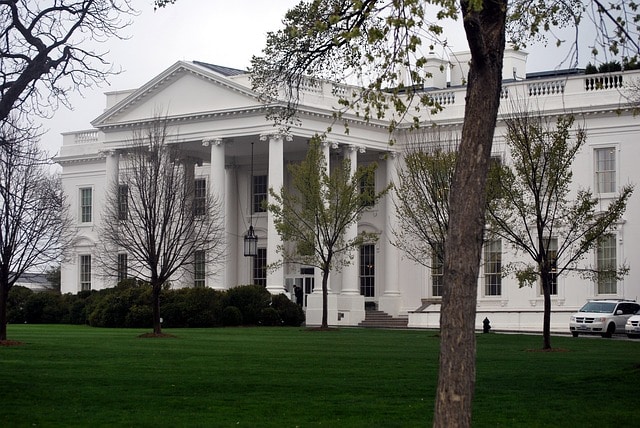Biden Administration Backs Science
Early signs from the Biden Administration indicate the Administration is elevating the role of science in its policymaking and actions. President Biden has already promoted the role of science advisor and director of the Office of Science and Technology policy to the level of a Cabinet position. Made up of 25 members, Cabinet members serve as key advisors to the president and include heads of major government agencies, members of Biden’s staff and Vice President Kamala Harris.
To fill the position, Biden has named biologist Eric Lander, PhD, President and Founding Director of the Broad Institute of MIT and Harvard. Dr. Lander has long been a leading scientists on the national stage, and served on President Obama’s Council of Advisors on Science and Technology (PCAST). Among the reports prepared by PCAST when Dr. Lander was co-chair was 2010’s, “Report to the President on Reengineering the Influenza Vaccine Production Enterprise to Meet the Challenges of Pandemic Influenza.” Because it is a Cabinet-level position, Dr. Lander must be confirmed by Congress.
Dr. Lander’s new role will likely inform Biden’s plan for an immediate increase in sequencing of the COVID-19 virus, if it has not already. Dr. Lander’s lab was one of the labs responsible for sequencing the first human genome, and he is one of the authors on the 2001 paper in Nature detailing the results. Writing in Nature a decade later, Dr. Lander characterized the accomplishment this way: “The greatest impact of genomics has been the ability to investigate biological phenomena in a comprehensive, unbiased, hypothesis-free manner. In basic biology, it has reshaped our view of genome physiology, including the roles of protein-coding genes, non-coding RNAs and regulatory sequences.”
Sequencing was key to first identifying the COVID-19’s virus and key to identifying some new variants. Among Biden’s efforts increasing the use of sequencing is the formation of a COVID-19 Pandemic Testing Board (Testing Board), charged with advancing government efforts for COVID-19 testing for diagnoses, screening and surveillance. Noted specifically in the executive order creating the Board is a call for more genomic sequencing.
Part of the Administration’s “American Rescue Plan,” Biden’s immediate response to the COVID-19 pandemic, released before his inauguration, stated in part, “The president-elect’s proposal includes funding to dramatically increase our country’s sequencing, surveillance, and outbreak analytics capacity at the levels demanded by the crisis.” Biden’s “National Strategy for the COVID-19 Response and Pandemic Preparedness,” released on January 21, names “increasing surveillance for variants and emerging threats” as an immediate action. The document reads, “The Administration will also expand surveillance and genomic sequencing to monitor for COVID-19 hotspots, variants of concern and emerging infectious disease threats.” It also lays out plans to increase sequencing capacity, as the Plan will “propose short- and long-term reforms for the Federal Government to: increase State, local, Tribal and territorial capacity to conduct testing; expand genomic sequencing; and improve the effectiveness and speed of the Federal Government’s response to future pandemics and other biological emergencies.” The Plan now faces Congressional approval.
As of December 2020 only 0.3% of all positive COVID cases in the US had been sequenced, according to the CDC. The CDC advocates for a step-up in COVID-19 sequencing in order to monitor new variants and surveillance. As part of this effort, the CDC’s National SARS-CoV-2 Strain Surveillance (NS3) aims to sequence 750 samples per week and to partner with reference labs, which aim to sequence an additional 1,750 samples per week. Other resources that will use sequencing include universities, state and local health departments and SPHERES (SARS-CoV-2 Sequencing for Public Health Emergency Response, Epidemiology, and Surveillance) consortium
Announcing his science staff on January 16, Biden proclaimed, “Science will always be at the forefront of my administration—and these world-renowned scientists will ensure everything we do is grounded in science, facts, and the truth.” Less than a week into office, President Biden has taken action directed at mobilizing scientific evidence and solutions to directly respond to the COVID-19 crisis as evidenced by the support of DNA sequencing. Beyond COVID-19, the Administration has already indicated its commitment to addressing cancer, where sequencing also plays a significant role. The road ahead for US government support for science looks bright.
Tasks Outline in President Joe Biden’s Letter to Dr. Eric Lander, new White House Science Advisor
- “What can we learn from the pandemic about what is possible—or what ought to be possible— to address the widest range of needs related to our public health?
- How can breakthroughs in science and technology create powerful new solutions to address climate change—propelling market-driven change, jump-starting economic growth, improving health, and growing jobs, especially in communities that have been left behind?
- How can the United States ensure that it is the world leader in the technologies and industries of the future that will be critical to our economic prosperity and national security, especially in competition with China?
- How can we guarantee that the fruits of science and technology are fully shared across America and among all Americans?
- How can we ensure the long-term health of science and technology in our nation?”





